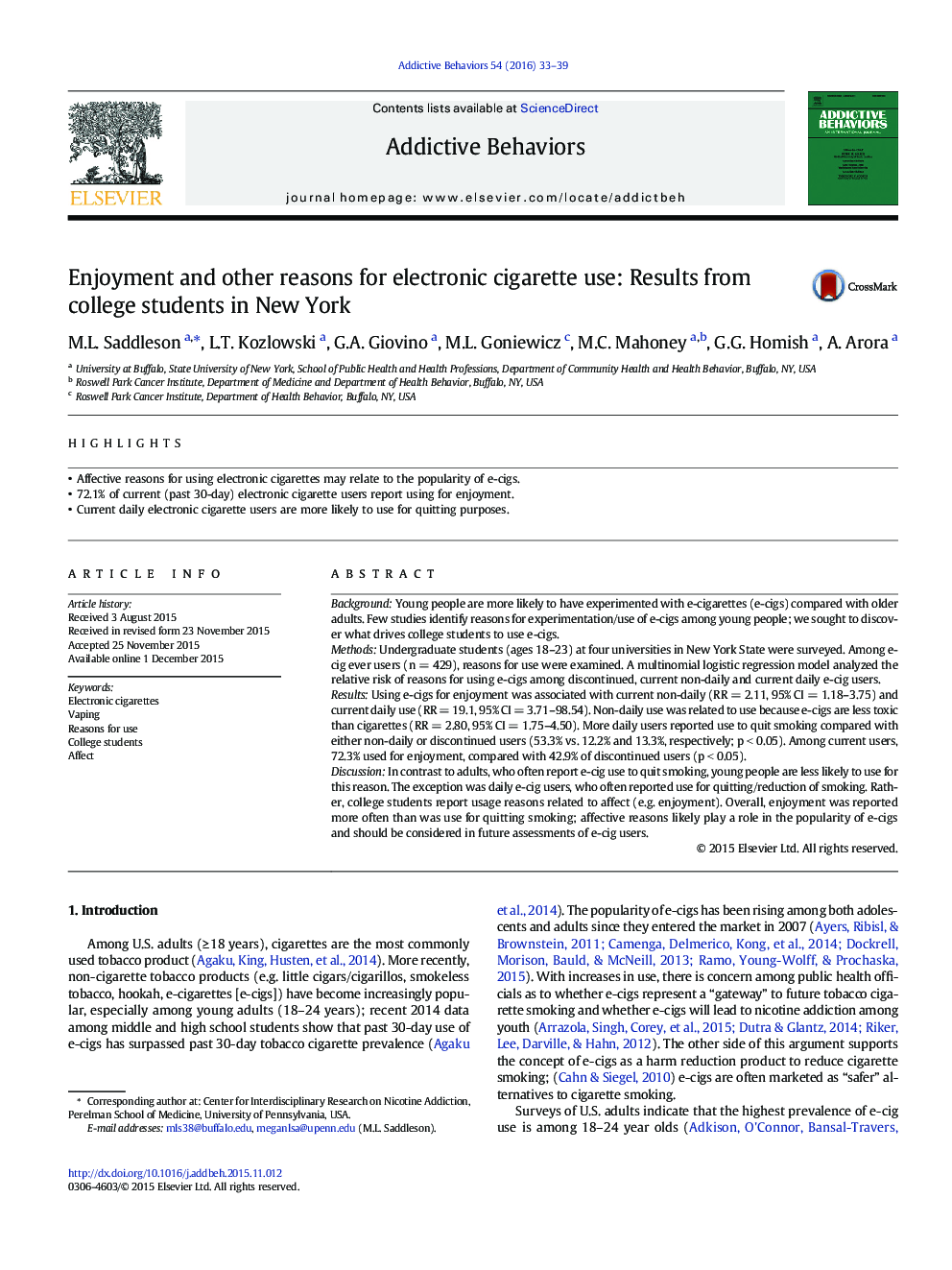| Article ID | Journal | Published Year | Pages | File Type |
|---|---|---|---|---|
| 898589 | Addictive Behaviors | 2016 | 7 Pages |
•Affective reasons for using electronic cigarettes may relate to the popularity of e-cigs.•72.1% of current (past 30-day) electronic cigarette users report using for enjoyment.•Current daily electronic cigarette users are more likely to use for quitting purposes.
BackgroundYoung people are more likely to have experimented with e-cigarettes (e-cigs) compared with older adults. Few studies identify reasons for experimentation/use of e-cigs among young people; we sought to discover what drives college students to use e-cigs.MethodsUndergraduate students (ages 18–23) at four universities in New York State were surveyed. Among e-cig ever users (n = 429), reasons for use were examined. A multinomial logistic regression model analyzed the relative risk of reasons for using e-cigs among discontinued, current non-daily and current daily e-cig users.ResultsUsing e-cigs for enjoyment was associated with current non-daily (RR = 2.11, 95% CI = 1.18–3.75) and current daily use (RR = 19.1, 95% CI = 3.71–98.54). Non-daily use was related to use because e-cigs are less toxic than cigarettes (RR = 2.80, 95% CI = 1.75–4.50). More daily users reported use to quit smoking compared with either non-daily or discontinued users (53.3% vs. 12.2% and 13.3%, respectively; p < 0.05). Among current users, 72.3% used for enjoyment, compared with 42.9% of discontinued users (p < 0.05).DiscussionIn contrast to adults, who often report e-cig use to quit smoking, young people are less likely to use for this reason. The exception was daily e-cig users, who often reported use for quitting/reduction of smoking. Rather, college students report usage reasons related to affect (e.g. enjoyment). Overall, enjoyment was reported more often than was use for quitting smoking; affective reasons likely play a role in the popularity of e-cigs and should be considered in future assessments of e-cig users.
